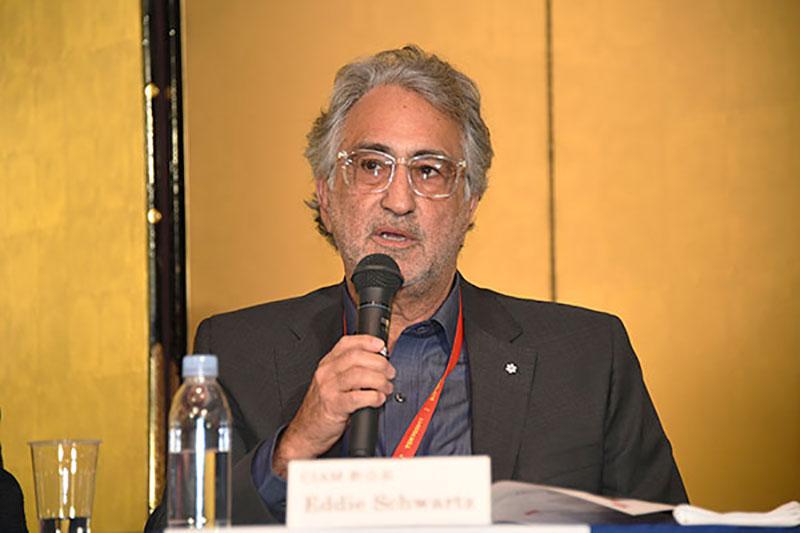CIAM president Eddie Schwartz recently gave an interview with the council's Latin American partner,
ALCAM, in which explained the key challenges facing music creators today. Mr. Schwartz also highlighted CIAM's key objectives for the year and shared some advice for new music authors based upon his 40-year career as a working songwriter.
The full text is reproduced below.
interview
What's your view towards the copyrights situation worldwide?
There is certainly no shortage of challenges, both regional and worldwide, but the dominance of a handful of global digital monopolies is a common reality we face “virtually” everywhere – and one that we cannot ignore.
I think this highlights why the collective management movement is so important to the well-being of individual music creators and independent music publishers. We have rights to be sure, copyright, authors’ rights, moral rights etc., but if we don’t effectively join together to collectivize our rights, we cannot achieve the scale we need to defend them and ensure the sustainable remuneration that we derive from those rights.
In your opinion, what's the main threat for copyrights in general?
It’s clear that digital technology has put the days of actually controlling the number of copies of a work behind us, so we need to rethink the idea of copyright, and how we survive as creators in this challenging environment.
In fact, the word “copyright” has been the target of a misinformation campaign in recent years, and is now tainted as an archaic idea, falsely claiming that copyright mostly benefiting large corporations. For that reason, the essential importance of copyright to the individual creator has largely been obscured in the digital transition.
Rather than focus on the word “copyright”, it may be more productive for us to look to new ways for us to communicate about our situation. That’s why CIAM supports the
Fair Trade Music (FTM) movement which focuses on ethical and sustainable business models, and is one of our global projects. Fair Trade Music gives us a new way to discuss many of the same issues, and one that is easier for most people to understand since FTM points creators and consumers toward ethical and sustainable music business models.
What do you think about the current relation between digital platforms and digital promotion channels with authors and composer's copyrights?
Most of these digital models, and streaming in particular, are not sustainable for songwriters and composers. Advertising based models are the worst offenders, where we see millions of streams of a work generating only enough money to buy a pizza. This is the “value gap” issue that is getting attention of late, particularly in the European Union, but elsewhere as well. I like the term “extraction of value” some have used, since it reflects the fact that music makes more money than ever before, but most of its value is “extracted” by intermediaries before any of it gets into the hands of those who actually create the music.
As far as so called “promotion” goes, it is now almost meaningless, since promotion only works if it results in remuneration for the music creators. If we are paid nothing when our work is promoted, and then paid almost nothing even if our songs become enormously successful, then it is a cynical exercise that enriches others at the expense of those who actually create the music.
What's the main challenge you'll take under your management as CIAM's president?
When it comes to challenges, we are rich indeed!
Certainly, continuing to build and strengthen our continental alliances in Latin America (
ALCAM), Asia Pacific (
APMA), Africa (
PACSA), North America (
MCNA) and Europe (
ECSA) is at the top of the list, as is the extraction of value issue. And we have to reach out to others who share our principles of an ethical, sustainable and transparent music ecosystem for the 21st century.
From your personal experience as an author, what's your advice for authors and composers starting their musical career?
Learning the business of music, and the rights you have as a music creator is very important, as is getting involved in advocating for those rights. They are always in jeopardy and must always be defended. I know most of us are so focused on just creating music and it is particularly difficult in the early parts of our careers. Every generation of music creators must stand up for our rights so we can pass them on to those who follow in our footsteps.

